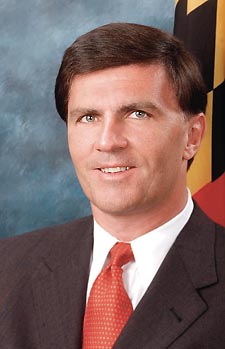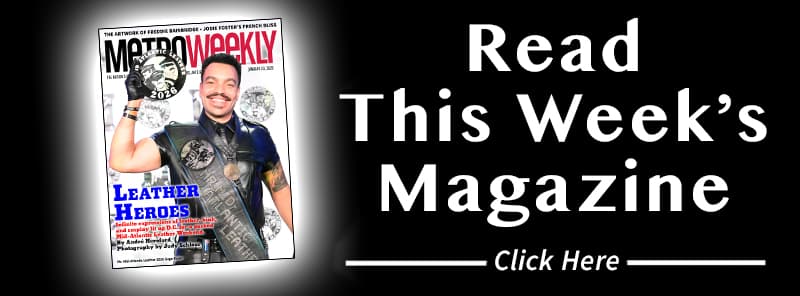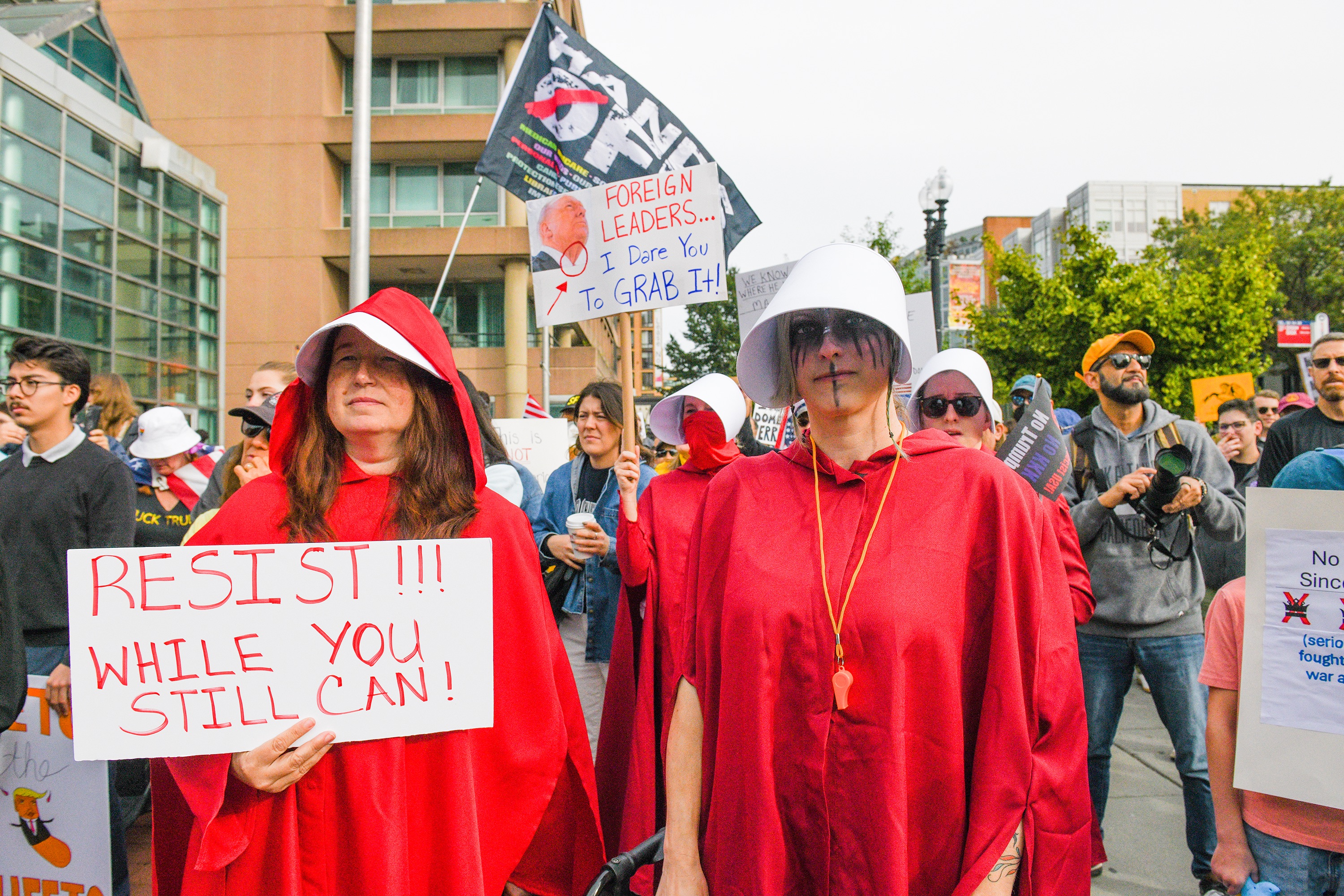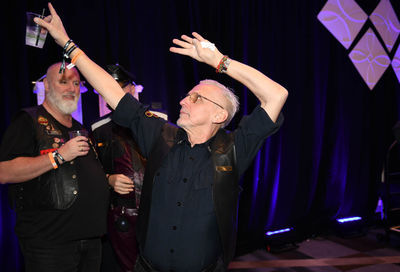Looking Down the Road
The next Maryland governor could set the state's course on gay marriage
It’s no shocker to many gay activists that Maryland Gov. Robert L. Ehrlich Jr., who is running for reelection, ignored a questionnaire on gay related issues from Equality Maryland’s Political Action Committee that was sent out to all of the state’s candidates before the September primaries.
”I don’t think he’s interested in votes from the gay community,” says Larry Jacobs, chair of Equality Maryland’s PAC. ”Participating in our questionnaire would antagonize [the votes of] religious conservatives.”
Jacobs, and many other gay activists, are already aware of Ehrlich’s stance on gay issues, including his openness to a state constitutional amendment that would ban same-sex marriage. And let’s not forget Ehrlich’s veto of the Medical Decision-Making Act, which would have granted medical decision-making rights and hospital visitations to gay couples by using a statewide registry for domestic partners.
 Ehrlich |
 O’Malley |
Ehrlich’s Democratic opponent, two-term Baltimore Mayor Martin O’Malley, did respond to Equality Maryland’s questionnaire. To the question ”Would you oppose any amendment whatsoever to the Maryland Constitution that bans marriage for same-sex couples?” O’Malley answered, ”Yes.”
Whether the next governor opposes or supports a constitutional amendment to block gay marriage will be particularly important in the coming weeks as Maryland’s highest court, the Court of Appeals, is scheduled to hold a hearing regarding the appeal of a judge ruling on Dean and Polyak v. Conaway.
That case sparked national attention when it was launched in July 2004 on behalf of 19 gay men and lesbians who joined forces with the American Civil Liberties Union (ACLU) and Equality Maryland. The group filed a suit against a 1973 statute that defined marriage as a union between a man and woman.
In January, Baltimore Circuit Court Judge M. Brooke Murdock ruled the law discriminatory, and Ehrlich — Maryland’s first Republican governor in 36 years — reacted by saying he was ”evaluating all options available to guarantee that marriage in Maryland remains a protected union between a man and a woman,” the Washington Post reported.
In July, Maryland’s Court of Appeals agreed to hear the appeal of Murdock’s ruling, which is currently scheduled for Dec. 4.
If the 1973 law is struck down, and Ehrlich continues in a second term as governor, gay activists fear that he will live up to his ”Promises made, promises kept” slogan and launch an effort for a state constitutional ban.
”The PAC has been focused on looking ahead to make sure that if we win that case, it doesn’t get overturned by a constitutional amendment,” Jacobs says. ”This election is going to have a major impact on what happens for us in the state of Maryland.”
O’Malley has had a pretty good record on gay issues in Baltimore, Jacobs says.
”Baltimore is the only place in the state of Maryland currently that protects transgender people, and that [came about] while he was in office.”
But O’Malley hasn’t proven to be an immaculate catalyst for gay rights just yet. For example, he is not willing to support a bill in the General Assembly to make issuance of marriage licenses in Maryland gender-neutral, according to the Equality Maryland questionnaire.
Still, Dan Furmansky, executive director of Equality Maryland, says O’Malley deserves the gay vote because he is willing to listen and work with the gay community.
”If Ehrlich wins, the [GLBT] community has a very slim chance of making any advancements legislatively for our community,” Furmansky said. ”Under an O’Malley administration, we’ll have a governor willing to listen to our concerns and work with us to further the rights of [GLBT] Marylanders.”
In addition to having a governor who will listen to the GLBT community’s concerns, an O’Malley’s victory would likely signal the election of a solid Democratic majority in the Senate and House.
”It would mean not only having a majority of Democrats, but Democrats that support our issues,” Jacobs says. ”We’re optimistic that a lot of good things for gay people could happen with O’Malley as governor, that didn’t happen with Ehrlich as governor.”
 Steele |
 Cardin |
When asked about all the things that ”didn’t happen” during Ehrlich’s tenure as Maryland’s Governor, Henry P. Fawell, press secretary for Ehrlich’s office, points out that many of the governor’s pro-gay efforts are being overlooked.
”The Governor offered and championed the Advance Medical Directive law here in Maryland, which allows an individual to designate a partner or loved one or whomever they deem appropriate to assist with the difficult end-of-life decision making process,” Fawell says. ”That demonstrates [Ehrlich’s] personal belief of equal rights.”
The Advance Medical Directive law, a substitute for the vetoed Medical Decision-Making law, uses a registry in the state health department, similar to what the Medical Decision-Making law had proposed.
But, as the Associated Press reported in May, the Advance Medical Directive law has certain limitations on gay couples that the Medical Decision-Making law would not have had. They include riding in an ambulance with an injured partner or making decisions after one’s partner has died, rights that are usually granted to married individuals.
As far as Ehrlich’s opposition to gay marriage, Fawell says it’s based on ”the governor’s firmly held beliefs.” Instead, Fawell highlights Ehrlich’s other accomplishments, including the Safe Schools Reporting Act, which requires that school officials report incidents of anti-gay bullying.
”[Ehrlich] believes in fairness and equality and that has been demonstrated in a number of policy decisions,” Fawell added.
In April, Ehrlich removed a Metro Board member and appointee, Robert J. Smith, who had made anti-gay comments during a political roundtable discussion on a Montgomery County cable television show.
Ehrlich issued a statement saying Smith’s comments were ”in direct conflict to my administration’s commitment to inclusion, tolerance and opportunity.”
But some activists argue that a lot of those achievements, including the Hate Crimes Penalties Act, which added the words ”sexual orientation” and ”gender identity” to Maryland’s Hate Crimes Law, were the result of their efforts, not Ehrlich’s.
”We introduced the bill [on the Hate Crimes Penalties Act] and got it through the legislature,” Jacobs says. ”Ehrlich didn’t veto it. He signed it. But it wasn’t his idea and he didn’t initiate it.”
Furmansky says it is one of the few achievements that legislatively advanced gay rights, if you consider it gay rights.
”I don’t think the Hate Crimes Law deals with gay rights,” Furmansky says. ”It deals with law enforcement, as a prosecutorial tool, and it’s common sense.”
”I’m thankful that Ehrlich saw it that way too, since he’s shown himself as an antagonist to gay rights.”
In the Maryland race for the U.S. Senate, many gay activists are hoping that Rep. Benjamin L. Cardin (D) will defeat Lt. Gov. Michael S. Steele (R).
Steele’s outspoken anti-gay outlook on the marriage issue has been demonstrated on more than one occasion. The Baltimore Examiner quoted him as saying, ”[Men and women of faith] should not be brow-beaten into thinking something that goes counter to what the people in the community aspire to.”
Cardin, on the other hand, supports legal protection for gay couples and opposes the Federal Marriage Amendment that would define marriage nationally as a union solely between a man and woman, according to his responses in the PAC’s questionnaire.
Equality Maryland has endorsed Douglas F. Gansler for Lt. Governor, and Peter Franchot for comptroller.
The group’s PAC was launched in April and has so far proven successful. Sixty of its 75 candidates made it past the state’s primaries.

|
”You build power by raising money and donating that money to candidates,” Jacobs says. ”It was just something we hadn’t done before.”
This year also marks the first that the Maryland elections have included an openly gay senator. Rich Madaleno, who lives in Kensington with his partner and daughter, is running for State Senate in District 18.
Heather Mizeur, an openly gay delegate from Takoma, is running for District 20 of the House of Delegates. She joins two other openly gay delegates who are running for reelection, they include: Anne R. Kaiser from Montgomery County for Maryland’s 14th District, and Baltimore’s Maggie McIntosh for District 43 (Baltimore City).
”An overwhelming majority of the candidates we endorsed were successful in the primaries,” Jacobs says. ”We have a lot of openly gay candidates that stand an excellent chance of being elected in November, so we are highly optimistic.”
For more information about Equality Maryland visit www.equalitymaryland.org.
Support Metro Weekly’s Journalism
These are challenging times for news organizations. And yet it’s crucial we stay active and provide vital resources and information to both our local readers and the world. So won’t you please take a moment and consider supporting Metro Weekly with a membership? For as little as $5 a month, you can help ensure Metro Weekly magazine and MetroWeekly.com remain free, viable resources as we provide the best, most diverse, culturally-resonant LGBTQ coverage in both the D.C. region and around the world. Memberships come with exclusive perks and discounts, your own personal digital delivery of each week’s magazine (and an archive), access to our Member's Lounge when it launches this fall, and exclusive members-only items like Metro Weekly Membership Mugs and Tote Bags! Check out all our membership levels here and please join us today!


























